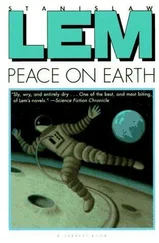That night, lying alone, I tried to comprehend what had taken place; unable to do this, I worked up a befitting pity for myself and my mother, and tears flowed until I fell asleep. I considered these tears to be an expiation; but then, later, the whole thing repeated itself, when I overheard the doctors conveying worse and worse news to my father. I dared not go up to my room; deliberately I sought the company of others. Thus the first person I ever shrank from was myself.
After my mother’s death I gave myself up to a child’s despair that was untroubled by any qualms. The fascination ended with her last breath. With her died my anxiety. This incident is so confusing that I can only offer a hypothesis. I had witnessed the fall of the Absolute — it had been shown to be an illusion — and witnessed a shameful, obscene struggle, because in it Perfection had come apart like the most miserable rag. This was the trampling of life’s Order, and although people above me supplied the repertoire of that Order with special evasions even for so dismal an occasion, these additions failed to fit what had happened. One cannot, with dignity, with grace, howl in pain — any more than one can in ecstasy. In the messiness of loss I sensed a truth. Perhaps I saw, in that which disrupted, the stronger side, and so sided with that side, because it had the upper hand.
My hidden laughter had no connection with the actual suffering of my mother. I only feared that suffering; it was the unavoidable concomitant of the expiring that I could understand, and I would have delivered her from the pain had I been able. I desired neither her suffering nor her death. At a real murderer I would have thrown myself with tears and pleas, like any child, but since there was none, I could only absorb the cruel treachery of the blow. Her body, bloated, turned into a monstrous, mocking caricature of itself, and it writhed in that mockery. I had only one choice: either to be destroyed with her or to jeer at her. As a coward, then, I chose the laughter of betrayal.
I cannot say whether it really was this way. The first paroxysm of giggling seized me at the sight of the destruction; perhaps the experience would have skipped me had my mother met her end in a fashion more aesthetic, like quietly falling asleep, a form that is much favored by people. It was not like that, however, and, forced to believe my own eyes, I proved defenseless. In earlier times a chorus of hired mourners, brought in quickly, would have drowned out the groans of my mother. But the decline of tradition has reduced magical measures to the level of hairdressing, because the undertaker — and I overheard this — suggested to my father the various facial expressions into which her frozen grimace could be reworked. My father left the room then, and for a brief moment I felt a tremor of solidarity, because I understood him. Later I thought of that mortal agony many times.
The idea of my laughter as a betrayal seems incomplete. Betrayal is the result of conscious decision, but what causes us to be drawn to destruction? What black hope, in destruction, beckons man? Its utter inutility rules out any rational explanation. This hunger has been suppressed in vain by numerous civilizations. It is as irrevocably a part of us as two-leggedness. To him who seeks a reason but cannot abide any hypothesis of a design, whether in the form of Providence or of the Diabolical, there remains only the rationalist’s substitute for demonology — statistics. Thus it is from a darkened room filled with the smell of corruption that the trail leads to my mathematical anthropogenesis. With the formulae of stochastics I strove to undo the evil spell. But this, too, is only conjecture, therefore a self-defensive reflex of the mind.
I know that what I am writing here could be, with slight shifts in emphasis, turned to my favor — and that some future biographer will try to do this. He will show that with intellect I conquered my character, achieved a great victory, but defamed myself out of a desire to do penance. Such labor follows in the steps of Freud, who has become the Ptolemy of psychology, for now, with him, anyone can explain human phenomena, raising epicycles upon epicycles: that construction speaks to us, because it is aesthetic. He converted the pastoral model into one that was grotesque, unaware that he remained a prisoner of aesthetics. It was as if the purpose had been to replace the opera, in anthropology, with tragicomedy.
Let my posthumous biographer not trouble himself. I require no apologia; all my effort was born of curiosity, untouched by any feeling of guilt. I wanted to understand — only to understand, nothing more. For the disinterestedness of evil is the only support, in man, for the theological argument; theology answers the question where does a quality come from that has its origin neither in nature nor in culture. A mind immersed totally in the human experience, and therefore anthropocentric, might finally agree with the image of Creation as a somewhat sick joke.
It is an attractive idea, that of a Creator who merely amused Himself, but here we enter into a vicious circle: we imagine Him sadistic not because He made us that way, but because we are ourselves that way. Meanwhile the utter insignificance and smallness of man vis-à-vis the Universe, of which science informs us, makes the Manichean myth a concept so primitive as to be trivial. I will put it in another way: if a creation were to take place — which personally I cannot conceive — then the level of knowledge that it would require would be of such an order that there would be no place in it for silly jokes. Because — and this really is the whole credo of my faith — nothing like the wisdom of evil is possible. My reason tells me that a creator cannot be a petty scoundrel, a conjurer who toys ironically with what he has brought into being. What we hold to be the result of a malign intervention could only make sense as an ordinary miscalculation, as an error, but now we find ourselves in the realm of nonexistent theologies — that is, theologies of fallible gods. But the domain of their constructional practices is nothing other than the field of my lifework, i.e, statistics.
Every child unwittingly makes the discoveries from which have sprung the worlds of Gibbs and Boltzmann, because to a child reality appears as a multitude of possibilities, where each can be taken separately and developed so easily that it seems almost spontaneous. A child is surrounded by a great many virtual worlds; completely alien to him is the cosmos of Pascal, a rigid corpse with even, clocklike movements. The ossified order of maturity later destroys that primal richness. If this picture of childhood seems onesided, for example, in that the child owes his inner freedom to ignorance and not choice — well, but every picture is one-sided. With the demise of imagination I inherited its residue, a kind of permanent disagreement with reality, more like an anger, though, than a rejection. My laughter had already been a denial, and a more effective kind, perhaps, than suicide. I acknowledge it, at the age of sixty-two; and the mathematics was only a later consequence of this attitude. Mathematics was my second desertion.
I speak metaphorically — but hear me out. I had betrayed my dying mother, betrayed all people, opting, with the laughter, for a thing of power greater than theirs, however hideous it was, because I saw no other way out. Later I would learn that this enemy of ours — which was everything, which had built its nest in us as well — I could also betray, at least to a certain extent, because mathematics is independent of the world.
Time showed me that I had been doubly mistaken. Genuinely to opt for death, against life, and for mathematics, against the world, is not possible. The only true option is one’s own annihilation. Whatever we do, we do in life; and, as experience has demonstrated, neither is mathematics the perfect retreat, because its habitation is language. That informational plant has its roots in the world and in us. This comparison has always been with me, even before I was able to put it into the language of a proof.
Читать дальше












